Hillsborough inquests: Doctor given empty oxygen cylinder to save man
- Published
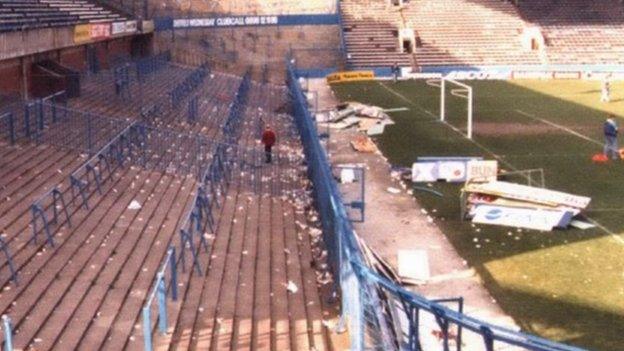
Dr Glyn Phillips said the scene after the crush at the Leppings Lane end was "chaotic and random"
An off-duty doctor was handed an empty oxygen cylinder while reviving a young man, the Hillsborough inquests heard.
Dr Glyn Phillips, who treated casualties despite being injured, was on the Leppings Lane terrace when the crush began but managed to escape.
The Liverpool fan treated Gary Currie, who was "deathly pale", in a severe state of collapse and looked "effectively dead".
Dr Phillips described the scene after the crush as "chaotic and random".
Ninety-six fans died as a result of the disaster at the FA Cup semi-final between Liverpool and Nottingham Forest at Sheffield Wednesday's Hillsborough stadium on 15 April 1989.
The GP told the jury he spent about 10 to 15 minutes giving the teenager CPR, and asked a police officer for a defibrillator or oxygen.
He was told there were no defibrillators, and when he was passed an oxygen cylinder he found it was empty.

Who were the 96 victims?
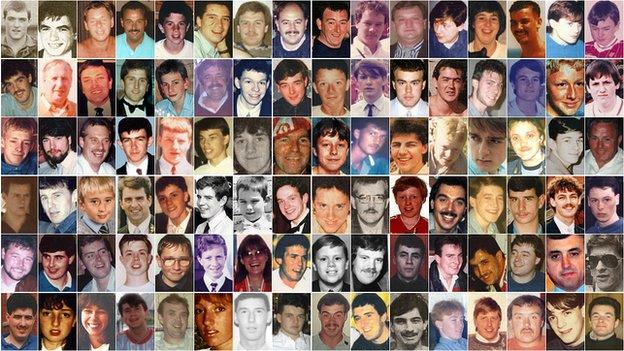
BBC News: Profiles of all those who died

The inquests heard Mr Currie survived, but Dr Phillips said other casualties he attended to could not be saved, including a boy who was "lifeless".
He had struck his own head on metalwork as he rushed to help Mr Currie and later needed stitches, the jury heard.
When asked whether he received any instructions he said: "No, it was absolutely chaotic, it was random. There were people milling around everywhere.
"There was no order to it all. At various times I asked a police officer 'I'm a doctor is there anywhere I can help?' They didn't know."
He said he had not been told a nearby gymnasium was being used as a casualty clearing area, and if he had known he could have offered some assistance.
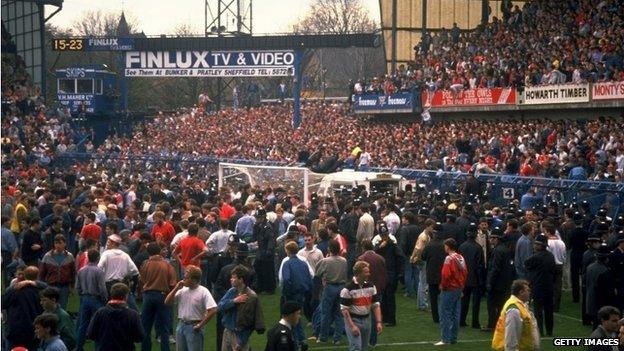
Former detective Michael Tissington said it was the "most horrific scene I have ever seen in my life"
Earlier, a former detective whose statement was altered after the disaster said police officers took photographs of fans on the terrace minutes after the crush.
Michael Tissington said he told one of the photographers: "You're going to get us all lynched."
The then South Yorkshire Police officer told the court his job was to check fans as they arrived for the game on minibuses.
He said that at about 15:00 he received a call to go to the Leppings Lane end of the ground and that when he arrived there, casualties were lying on the floor in the area behind the stand.
'People piled up'
Mr Tissington said he received no instructions about what to do, and had no idea what was happening until an officer came running from the terrace shouting: "Get some men in here, we've got big problems."
When he made it into pen three of the Leppings Lane terrace - one of the worst affected areas - he said it was the "most horrific scene I have ever seen in my life".
"There was just people piled on top of each other," he said.
He recalled how people were falling over him as he tried to give first aid, so he began to carry the victims out through the tunnel to the area behind the terrace.
The jury was told he made the trip six to 10 times before the tunnel became blocked, but added he could not say whether those he was helping were alive or dead.
Later, he said he noticed the police photographers taking photos of fans in the corner of the Leppings Lane terrace, leaving supporters understandably angry.
He said: "[The officers] were making things worse.
"I asked this photographer who I know: 'What was the reason for taking these photographs, he was just making the situation worse'.
"His response was that he'd been told to take these photos by an assistant chief constable."
Mr Tissington said he swore at him and added: "You're going to get us all lynched."
'No command structure'
The court was shown a version of the statement Mr Tissington made a few days after the disaster with large sections crossed out.
They included criticisms of the police photographers, and of the overall police command at the ground.
One section of his statement, which was crossed out, read: "The main topic of conversation since Saturday has been that there was no command structure, and I think that has got to be looked into and some questions asked there."
Mr Tissington said: "I was never told to delete anything from my original transcript."
When asked how he would have reacted if he had been asked to delete parts of his statement he said: "I don't think I would have tolerated that in any way, shape or form."
The inquests in Warrington continue.
- Published8 January 2015
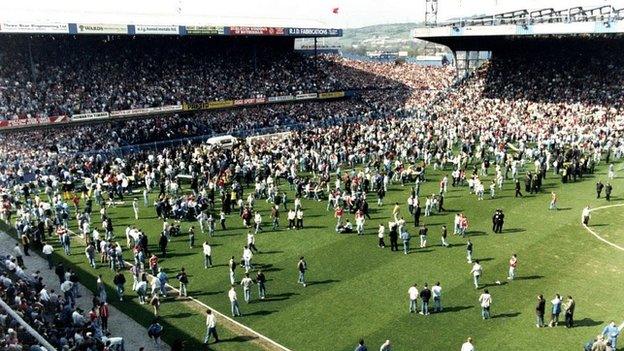
- Published19 December 2014
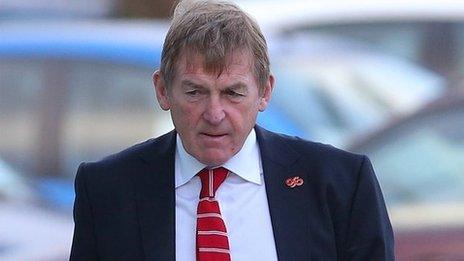
- Published18 December 2014
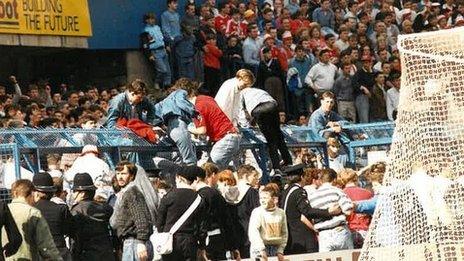
- Published17 December 2014
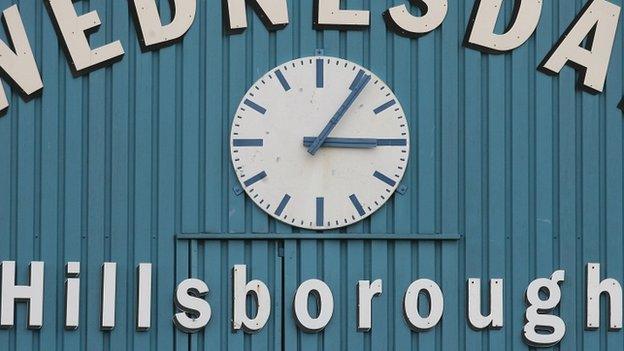
- Published16 December 2014
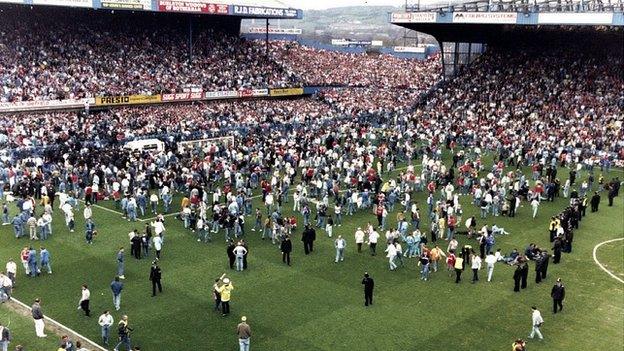
- Published15 December 2014
